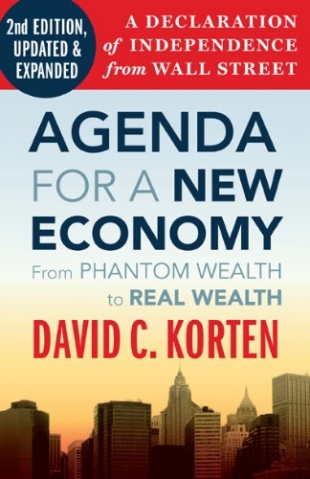"When Ed Diener and his colleagues at the University of Illinois compared the life-satisfaction scores of groups of people of radically different financial means, they found four groups clustered at the top, with almost identical scores on a 7-point scale.
"One cluster of respondents, which was composed of people on Forbes magazine's list of the richest Americans, had an average score of 5.8. Ah, so money does bring happiness — at least when you are at the very tip-top of the hierarchy.
"The other three top-scoring clusters were, by contrast, from three groups known for their modest, egalitarian lifestyles and strength of community. These were the Pennsylvania Amish (5.8), who favor horses over cars and tractors; the Inuit of northern Greenland (5.8), an indigenous hunting and fishing people; and the Masai (5.7), a traditional herding people in East Africa who live without electricity or running water in huts fashioned from dried cow dung. These are all communities in which people care for one another and share their resources, and in which economic distinctions are minimal.
"By definition, the Forbes 400 list is limited to four hundred people. We cannot all be on it. We could all, however, be living in equitable, caring, sharing communities and enjoying the associated health and happiness benefits. We need only to create societies that put less emphasis on making money and more on cultivating caring place-based communities that distribute wealth equitably.
"Wall Street is bad for our health and happiness, not only because it has given us a health care system that places greater priority on Wall Street profits than on our health and well-being, but even more because it destroys a sense of community, creates a narcissistic culture, and rewards predatory competition."
